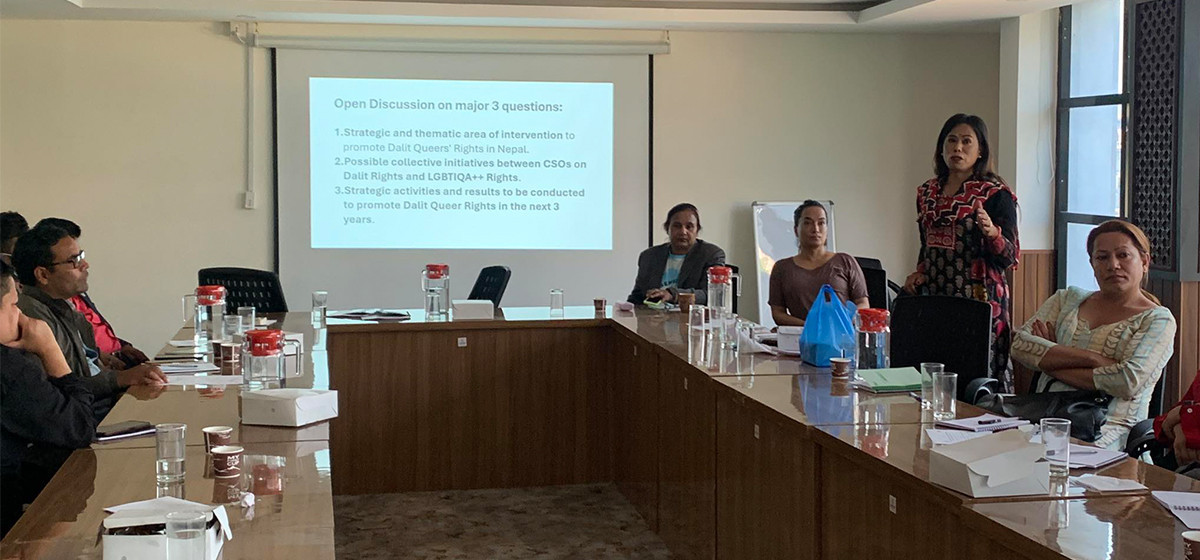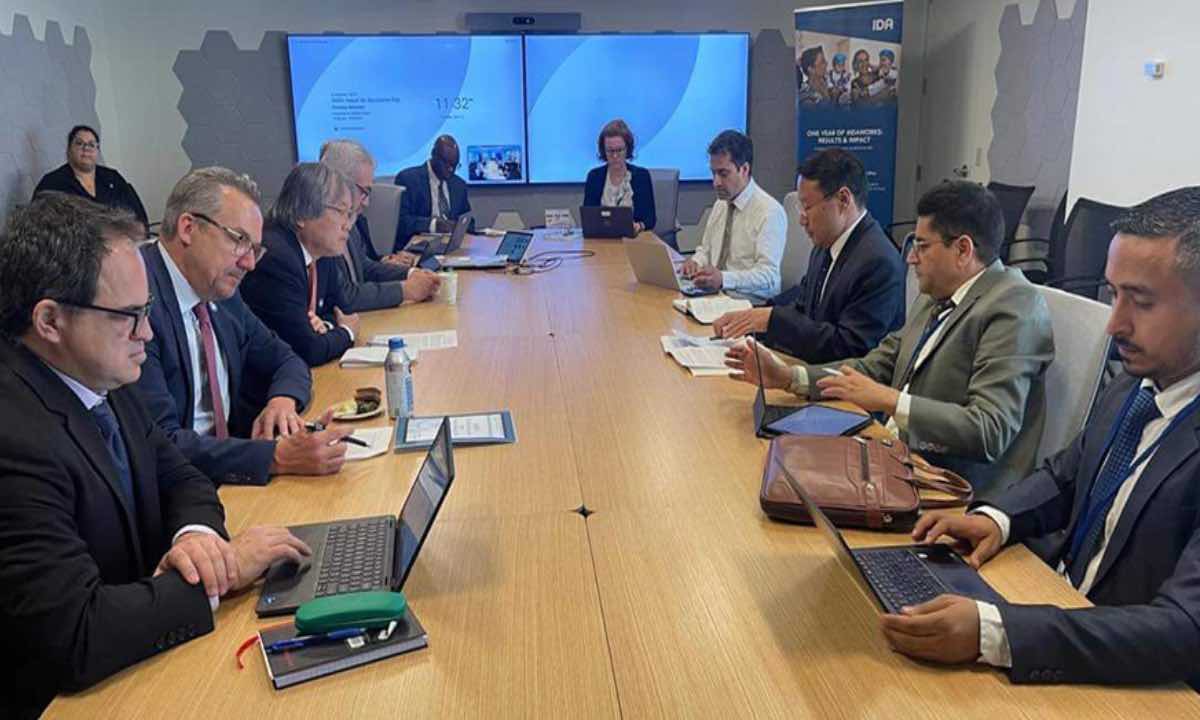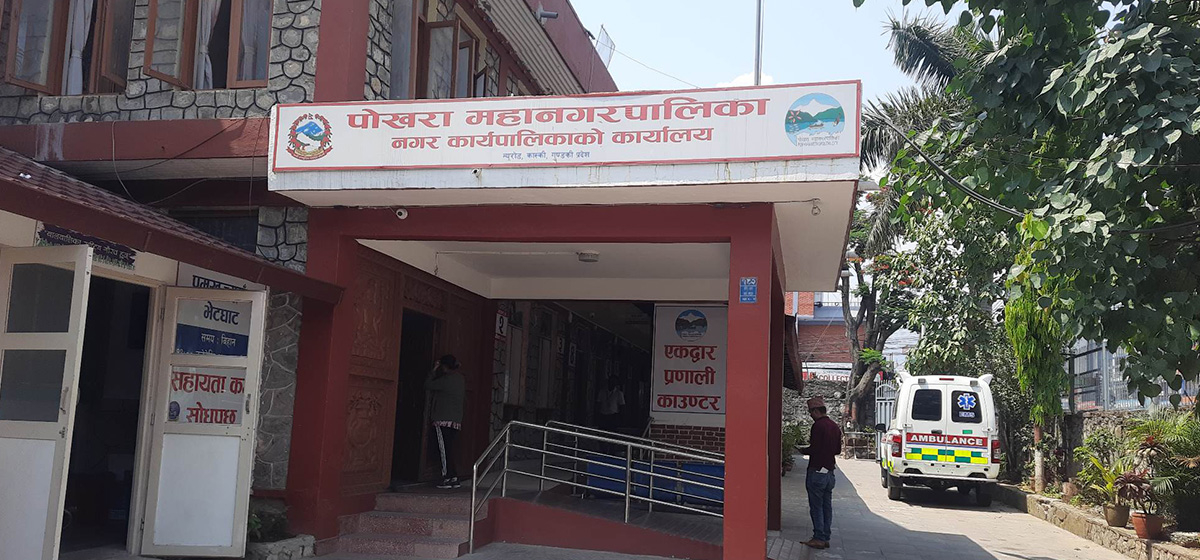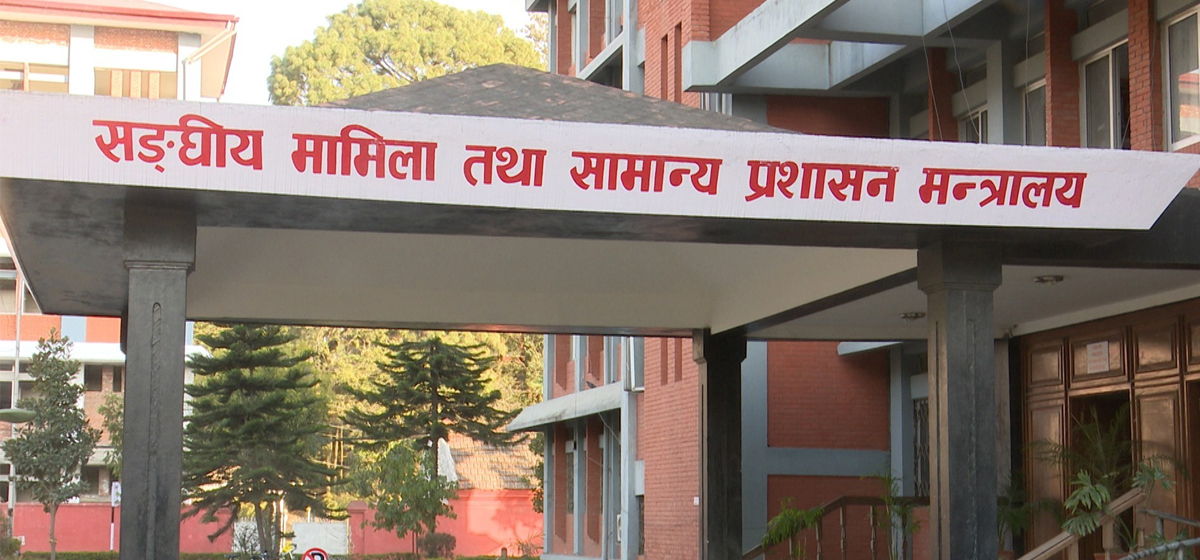
OR
Govt treasury empty after haphazard spending in last month
Published On: July 21, 2018 10:22 AM NPT By: Rudra Pangeni | @rudrapang
KATHMANDU, July 21:The government treasury is now empty following irrational budget distribution at the end of the fiscal year that ended Monday. Not a single penny has been left from the previous fiscal year , according to officials of the Ministry of Finance (MoF). This fiscal indiscipline on the part of the current government is sure to have serious consequences as it may trigger internal borrowing right from the first month, just as the previous government had done this time last year.
The internal borrowing may exert further pressure on cash available for lending in the banking sector, shrinking the growth of the private sector, said two MoF officials who have direct knowledge of the matter .
The government spent about 33 percent of the total allocated budget for development purposes of Rs 335 billion, or Rs 110 billion, in the 12th month . A total of Rs 27 billion was paid out for the purpose on a single day in the last month. Overall payment by the government in the last month (mid-June to Mid-July) hovered at around 28 percent of the total budget of Rs 1,278. Economists have criticized this eleventh hour spending, questioning the motives and rationale.
Talking to Republica, Finance Secretary Rajan Khanal admitted that the government's coffers were empty, but it would manage expenses through revenue collection and also overdrafts from Nepal Rastra Bank.
“ It is unusual in our context for the government to have zero balance as it may not be able to pay for any possible emergency,” said economist Keshav Acharya. “Spending at whim in the eleventh hour including paying out Rs 27 billion in a single day is an extreme case and is not in any sense responsible fiscal management."
The pressure on the government has already started as it has to disburse immediately a total of Rs 78.66 billion-- Rs 21 billion for provinces and Rs 57.66 billion for the local levels-- as part of conditional grants, and these were payable on Tuesday, the first day of the fiscal year .
The government needs further disbursements of Rs 16.76 billion and Rs 45.16 billion by August 10 to the provinces and local levels respectively as equalization grants . “Government has no choice but go for internal burrowing as early as possible,” added an official. In a change from the past year, the payment of equalization grants was separated and scheduled on August 10 in order to evade pressure for fiscal transfers to subnational governments in the Appropriation Act 2075.
The revenue collection may be only in the tune of Rs 23 billion in the first month of the current fiscal year, Shrawan. The amount will be too little to meet the requirement of grants disbursement to the local level and meet regular spending. Khanal, however, claimed that they won't opt for internal borrowing immediately.
Former finance secretary Shanta Raj Subedi said the only option is internal borrowing as overdraft payments are used only during a time of crisis . Subedi, however, claimed that it's common practice for the government to spend all the money it collects within the space of the allocated budget within that fiscal year.
Speaking at a discussion with media on budget implementation for the current fiscal year Friday, Khanal argued that the bulk payments in the last month of the previous fiscal year were only additional payments for development projects including the Mid-Hill Highway and Dharan-Chatara road, and also a bulk payment of Rs 34 billion as housing grants for quake victims.
“It also won't be easy to borrow from the banks immediately to meet the current expenses,” economist Acharya said.
The cash-strapped government may be forced to start internal borrowings immediately, according to economists and government officials. But lack of funds in the BFIs runs counter to the government's aid of growth in the private sector for creating more jobs and achieving higher economic growth .
The government last year was in deficit of Rs 48 billion despite expectations of savings and cash balance transfer of about Rs 150 billion. And the reason was the same—haphazard spending.
You May Like This

Haphazard spending in the last week of fiscal year
KATHMANDU, July 16: The government has spent Rs 34.46 billion in capital expenditure in the past eight days which is... Read More...

Govt at last forms team for talks with Dr KC
KATHMANDU, July 17: At a time when the government is being widely criticized for not caring seriously about the demands... Read More...

Rural municipality to hold salaries of govt teachers not sending their children to govt school
JAJARKOT, June 30: A rural municipality in Jajarkot district has decided to stop the salaries of teachers at government schools in... Read More...








Just In
- 80 civil servants left in the lurch as MoFAGA places them in reserve pool
- Weather Alert: Storm likely in Lumbini and Sudurpaschim
- NOC investing Rs 3 billion to construct fuel storage plants of over 9,000 kl capacities in Bhairahawa
- Reflecting on a festive journey filled with memories and growth
- Dalit sexual and gender minorities lack representation within their own communities and groups
- Nagdhunga-Sisnekhola tunnel breakthrough: Beginning of a new era in Nepal’s development endeavors
- Altitude sickness deaths increasing in Mustang
- Weather forecast bulletin to cover predictions for a week











Leave A Comment